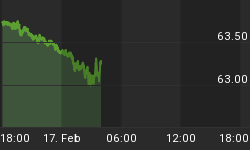The big news over the weekend is that Citigroup, Bank of America and JP Morgan were putting together a consortium of financial institutions to establish an entity, the Master Liquidity Enhancement Conduit (MLEC), whose purpose would be to buy securities from structured investment vehicles (SIVs) that are having difficulties funding themselves (see Banks agree $75bn mortgage debt fund). SIVs are investment funds, some of which have off-balance sheet affiliations with large financial institutions, such as Citigroup, that purchase asset-backed securities, financing their purchases through the issuance of asset-backed commercial paper (ABCP). In recent months, investors' appetite for ABCP has all but evaporated due to concern about the credit quality of the assets, especially subprime mortgage-related paper backing the commercial paper (see chart below). With the inability to rollover their ABCP, some SIVs would either have to liquidate their assets or have their assets come onto the balance sheets of their affiliated financial institutions such as Citigroup. The liquidation of assets under current market conditions might entail sharp declines in the prices of these assets. This would put pressure on other institutions holding similar assets to mark down the value of these assets on their balance sheets. If the affiliated financial institution were to put its SIV's assets onto its balance sheet, these assets would then incur a charge against the institution's capital, which could constrain the institution's ability to engage in revenue-producing activities.
Chart 1
The idea of the MLEC is for it to purchase various high-quality assets from SIVs and to finance these purchases via MLEC-issued commercial paper. Although it is not entirely clear to me what guarantees would be provided by the MLEC's syndicate of financial institutions, presumably they would absorb some part of the losses the MLEC might incur. As some analysts have observed, it is not the high-quality assets of the SIVs that have impaired the credit quality of ABCP, but the questionable assets on their books such as subprime mortgage-related securities. To a skeptic, this MLEC might appear akin to re-arranging the deck chairs on the Titanic.
But even to one less skeptical, the establishment of the MLEC does not seem to do much in terms of addressing the key underlying issue – rising mortgage defaults and falling residential real estate prices. Merrill Lynch has estimated that $683 billion of non-prime residential mortgages will subject to interest rate resets between the second quarter 2007 and the fourth quarter 2008. Many of these mortgages were issued in 2005 and 2006, the nadir of underwriting standards. Many of the borrowers made no or very low downpayments on the homes they purchased. Given price declines on homes of late, many of these borrowers have negative equity in their homes and will not be able to afford the higher interest rates they face after resets. In other words, lenders will not receive the principal and interest rates they were promised when they purchased the securities backed by these mortgages. Wall Street can value these securities at any price it chooses. But the fact is that holders of some of these mortgage-backed securities are not going to receive the cash flow they expected. Wall Street can value these securities at any price it chooses, but the fact remains that house prices are going to fall and that fall in house prices will have real negative effects on economic activity. Unless I am missing something, which is entirely possible, it looks to me as though the establishment of the MLEC is another attempt to turn a sow's ear into a silk purse.
















